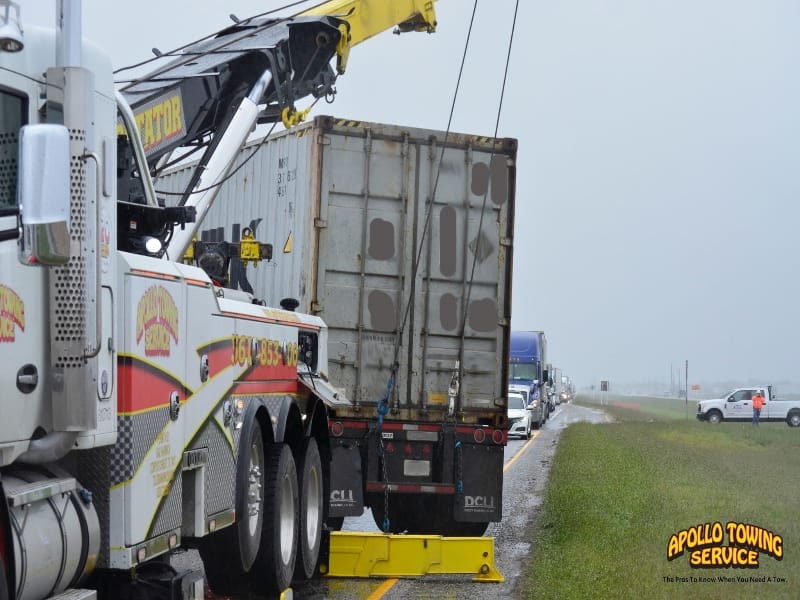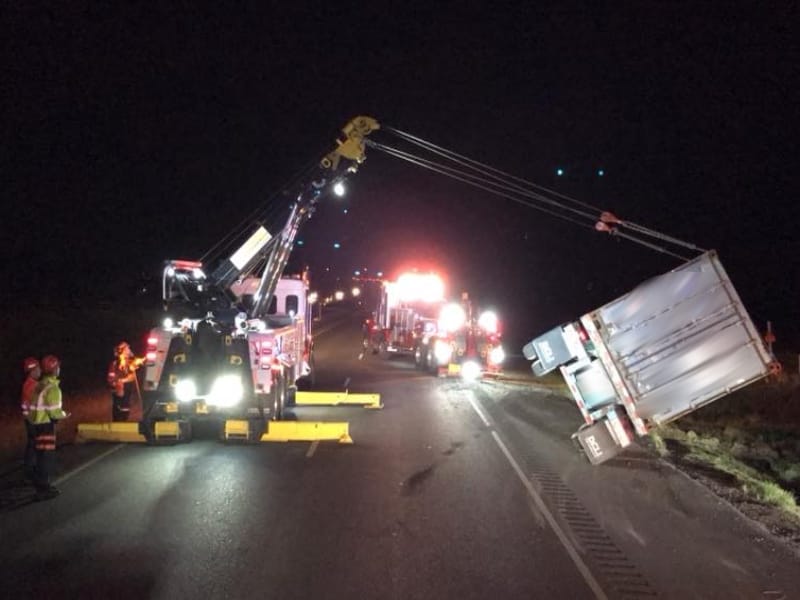What Jackknifing Really Means for Truckers
For truckers, few incidents are as disruptive as a jackknife. It can halt a delivery schedule, damage cargo, and cause costly repairs. Not to mention the safety risks to the driver and everyone else on the road. Once a rig folds in on itself, the heavy towing process can be lengthy, tying up traffic and resources. Our Odem heavy recovery team has seen how quickly a workday turns into an ordeal when this happens, and it’s why prevention is so important.
Jackknifing can ripple through an entire operation. Loads are delayed, customers are left waiting, and drivers may face days off the road while repairs are made. That’s why understanding what causes a jackknife and how to prevent one is worth every driver’s attention.

What Jackknifing Is and Why It Happens
A jackknife occurs when the trailer swings out at an angle to the cab, creating a sharp “V” shape that blocks movement. This usually happens when the drive wheels lose traction, often during hard braking or sudden maneuvers.
Due to our Odem heavy recovery work, we know that jackknifes are caused by:
- Over-braking on slick or downhill roads
- Poorly balanced loads
- Worn or underinflated tires
- Excessive speed for conditions
However, it’s rarely just one mistake. More often, it’s a combination of factors that come together in the wrong moment.
Practical Steps for Prevention
The good news is that most jackknifes can be avoided with consistent driving habits and equipment checks. Drivers can lower their risk by:
- Reducing speed before turns, ramps, and steep grades
- Keeping tires properly inflated and well-treaded
- Securing and balancing loads evenly
- Using steady, gradual braking instead of sudden stops
- Allowing extra following distance, especially in bad weather
These strategies save rigs from potentially dangerous situations, and they don’t require advanced technology, just awareness and discipline.
Weather and Road Conditions Matter
Road surfaces can change in an instant. Rain brings up oil from the pavement, ice hides in shaded areas, and strong winds can push a lightly loaded trailer sideways. These conditions can set up a jackknife before a driver even realizes traction has been lost. The key is adjusting speed and following distance as soon as conditions start to shift.
Prevention Pays Off
Preventing a jackknife protects the driver, the load, and every motorist sharing the road. For companies, it means fewer delays, less damage, and more consistent service. For us, as an Odem heavy recovery provider, it means fewer dangerous recoveries in high-traffic areas… And that’s something we’re happy to see.

Apollo Towing Can Handle Your Odem Heavy Recovery
At Apollo Towing, we’ll always be ready to respond when a jackknife happens, but we know the best outcome is a safe trip that never requires our help. Our Odem heavy recovery services can handle even the toughest situations, from blocked highways to off-road extractions. We’ve invested in the Odem heavy recovery equipment and Odem heavy recovery training needed to get rigs upright and moving again with minimal delay. Prevention keeps schedules intact, cargo secure, and drivers in control. That’s the kind of road everyone wants to travel.

